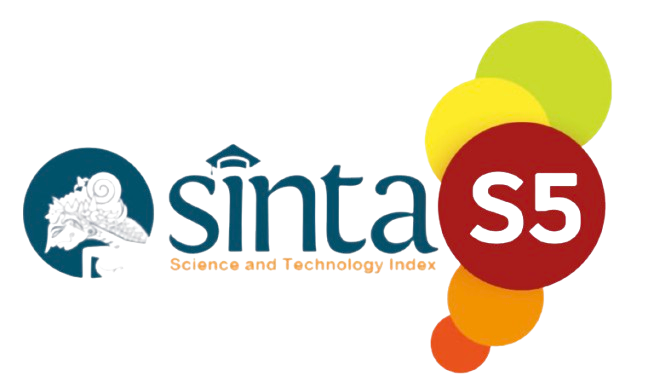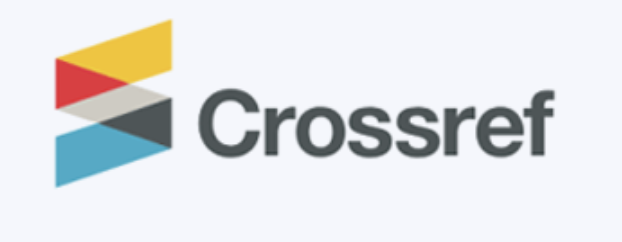Using ELSA Speak Application as A Medium to Improve English Speaking Skills
DOI:
https://doi.org/10.52217/ijlhe.v7i1.1547Keywords:
ELSA Speak application, English, high school students, speakingAbstract
This study aims to assess how the ELSA Speak app helps improve the English-speaking skills of eighth-grade students at an Indonesian Islamic Junior High School and measure how much their speaking skills improve after using the app. The participants in this research included one English teacher and 15 eighth-grade students. The research was conducted using a Classroom Action Research (CAR) methodology, combining both qualitative and quantitative approaches. Qualitative data were gathered through photographs and observation checklists, while quantitative data were derived by comparing students' pre-test and post-test results. In the first cycle of the study, the average pre-test score was 53.93, which increased to 62.47 in the post-test. In the second cycle, students' performance improved further, with the pre-test score rising to 61.67 and the post-test reaching 74.87. The statistical analysis revealed a significant improvement in students' speaking abilities, as indicated by the t-test results. The t-test value for the second cycle (7.665) was notably higher than that of the first cycle (5.502), demonstrating a significant impact on students' speaking skills. The overall improvement from the first to the second cycle was 46.66%. Based on these findings, the study concludes that the use of the ELSA Speak application has a substantial positive effect on the students’ English-speaking proficiency.
References
Al-Tamimi, N. O., & Attamimi, R. A. (2014). Effectiveness of cooperative learning in enhancing speaking skills and attitudes towards learning English. International Journal of Linguistics, 27-45. https://doi.org/10.5296/ijl.v6i4.6114
Aratusa, Z. C. (2018). Using Accent Reduction Software To Improve English Beginners’ Pronunciation. Atlantis Press.
Bashir, M., & Azeem, M. (2011). Factor effecting students’ English speaking skills. British Journal of Arts and Social Science, 34-50. https://www.researchgate.net/publication/228840274_Factor_Effecting_Students%27_English_Speaking_Skills
Darsih, E., Widahi, M., & Hanggara, A. (2020). Using ELSA app in speaking classes: students’ voices. Universitas Kuningan.
Fitria, T. N. (2021). The use technology based on artificial intelligence in English teaching and learning. ELT Echo: The Journal of English Language Teaching in Foreign Language Context, 214-223. https://doi.org/10.24235/eltecho.v6i2.9299
Florez, M. A. (1999). Improving adult English language learners’ speaking skills. National Center for ESL Literacy Education, 1-4. https://eric.ed.gov/?id=ED435204
Ghufron, A M. (2024). Improving speaking skills using ELSA AI-powered application. In Hasbi, M., Alamsyah, A., Faozan, A., Astawa, N. L. P. N. S. P., Fauzi, A. R., Utomo, H. Y., Devi, A. P., Nor, H., Adimarta, T., Kristanto, Mandasari, B., Dewi, R. F., Nisa, B., Hartati, E., Pricilia, G. M., Saputra, R. M., Purnami, I. A. O., Nisa, I. K., Mangendre, Y., Nurohman, Fajaria, N. H., Amna, S., Ariawan, S., Widodo, J. S., Ghufron, A. M., Adzhani, S. A., Fadhilawati, D., Sari, A. S., Rejeki, S., & Rohqim, A. I. F. (2024). Useful AI Tools For English Teachers, Pp. 301-311. Rizquna. http://e-repository.perpus.iainsalatiga.ac.id/21414
Ginting, D., Fahmi, F., Barella, Y., Hasbi, M., Kadnawi, K., Rojabi, A. R., & Zumrudiana, A. (2022). Students’ perception on TPACK practices on online language classes in the midst of pandemic. International Journal of Evaluation and Research in Education (IJERE), 11(4), 1995-2009. doi: 10.11591/ijere.v11i4.23014
Hasbi, M. (2013). The attitudes of students from ESL and EFL countries to English. Register Journal, 6(1), 1-16. https://doi.org/10.18326/rgt.v6i1.1-16
Hasbi, M. (2017). Bringing pop-culture into classroom: Speaking 3’s Got Talent activity to enhance speaking skill of university students. Ta'dib, 19(2), 183-192.
Hasbi, M. (2020). English Teaching Practices in Indonesia during COVID-19 Crisis. CV Raditeens.
Hastomo, T., Kholid, M. F. N., Muliyah, P., Septiyana, L., & Andewi, W. (2024). Exploring how video conferencing impacts students’ cognitive, emotional, and behavioral engagement. Journal of Educational Management and Instruction (JEMIN), 4(2), 213–225. https://doi.org/10.22515/jemin.v4i2.9335
Hastomo, T., Mandasari, B., & Widiati, U. (2024). Scrutinizing Indonesian pre-service teachers’ technological knowledge in utilizing AI-powered tools. Journal of Education and Learning (EduLearn), 18(4), 1572–1581. https://doi.org/10.11591/edulearn.v18i4.21644
Hosni, S. A. (2014). Speaking difficulties encountered by young EFL learners. International Journal on Studies in English Language and Literature (IJSELL), 22-30. https://www.scirp.org/reference/referencespapers?referenceid=2635863
Hung, N. Q., Phung, T. K., Hien, P., & Thanh, D. N. (2021). AI and Blockchain: potential and challenge for building a smart E-Learning system in Vietnam. Vietnam: IOP. https://doi.org/10.1088/1757-899X/1022/1/012001
Istiara, F., Hastomo, T., & Indriyanta, W. A. (2023). A study of students’ engagement and students’ speaking skill: A correlational research. TEKNOSASTIK, 21(1), 1–7. https://doi.org/10.33365/TS.V21I1.2198
Khasinah, S. (2013). Classroom action research. Jurnal Pionir, 4(1), 108-114. http://dx.doi.org/10.22373/pjp.v4i1.159
Kholis, A. (2021). Elsa Speak app: Automatic Speech Recognition (ASR) for supplementing English pronunciation skills. Journal of English Language Teaching, 9(1), 1-14. https://doi.org/10.32332/joelt.v9i1.2723
Kurniawan, I., Sabaruddin, S., & Gusweni, F. (2018). An analysis of students’ English speaking skills at Coastal Schools of Bengkulu City, Indonesia. The Journal of English Language Studies, 3(1), 19 -31.
Leong, L.-M., & Ahmadi, S. M. (2017). An analysis of factors influencing learners’ English speaking skill. International Journal Of Research in English Education , 24-41. https://doi.org/10.18869/acadpub.ijree.2.1.34
Rao, P. S. (2019). The importance of speaking skills in English classrooms. Alford Council of International English &Literature Journal(ACIELJ), 6-18. https://www.scirp.org/reference/referencespapers?referenceid=2938389
Rosyid, A., & Hidayati, P. S. (2021). Teaching Pronunciation Through MALL:Promoting EFL Learners’ Pronunciation And Their Learning Autonomy. Bogor: Pakuan University.
Samad, I. S., & Aminullah, A. (2019). Applying ELSA Speak software in the pronunciation class: students’ perception. Jurnal Edumaspul, 56-63. https://doi.org/10.33487/edumaspul.v3i1.85
Samad, I. S., & Ismail. (2020). ELSA Speak application as a supporting media in enhancing students’ pronunciation skill. Majesty Journal, 1-7. https://doi.org/10.33487/majesty.v2i2.510
Sari, A. S. (2024). Building Gen Z-Friendly Classroom Engagement. In Hasbi, M., Islamiah, N., Astawa, N. L. P. N. S. P., Hamidah, F. N., Nor, H., Februati, B. M. N., Nisa, B., Sari, E. D. S., Yuliani, N. D., Sari, A. S., Tungka, N. F., Rahmah, M., Sata, M. R. M., Madkur, A., Fauzi, A. R., Rahmawati, O. 1., Purnami, I. A. O., Mulyani, Y. S., Lina, M. F., Dewi, R. F., Hastomo, T., Pricilia, G. M., Juhansar, Mandasari, B., Assiddiq, M. A., Nurohman, Ghufron, A. M., Amna, S., Naufal, M. R., Fajaria, N. H., & Wardani, E. (2024). How to Teach English to Gen Z Students. Rizquna
Sari, L. P., Hastomo, T., & Nurchurifiani, E. (2023). Assessing the Efficacy of Duolingo for Acquiring English Vocabulary Skills: Experimental Research. Journal of English Teaching Applied Linguistics and Literatures (JETALL), 6(2), 193–200.
Thanh, L. L., Qui, N. T., Thanh, V. N., & Hung, N. M. (2021). The need of applying English learning apps to help Van Lang University students improve their spoken English performance. AsiaCALLOnline Journal, 72-86. https://asiacall.info/acoj/index.php/journal/article/view/33
Utami, E. P. N., Islamiah, N., & Perdana, I. (2020). The Implementation of direct method in teaching speaking at junior high school. Proceeding: Islamic University of Kalimantan, 1(1).
Venera, U. (2017). The design and use of speaking assessment rubrics. Journal of Education and Practice, 135-141. https://www.iiste.org/Journals/index.php/JEP/article/view/39732
Zulfanita, N. S. (2019). The Use Of Youtube To Improve Students’ Ability In Writing(A Classroom Action Research Of The Eleventh Grade Students Of Smk Negeri 1 Bawen In The Academic Year 2019/2020). IAIN Salatiga.













